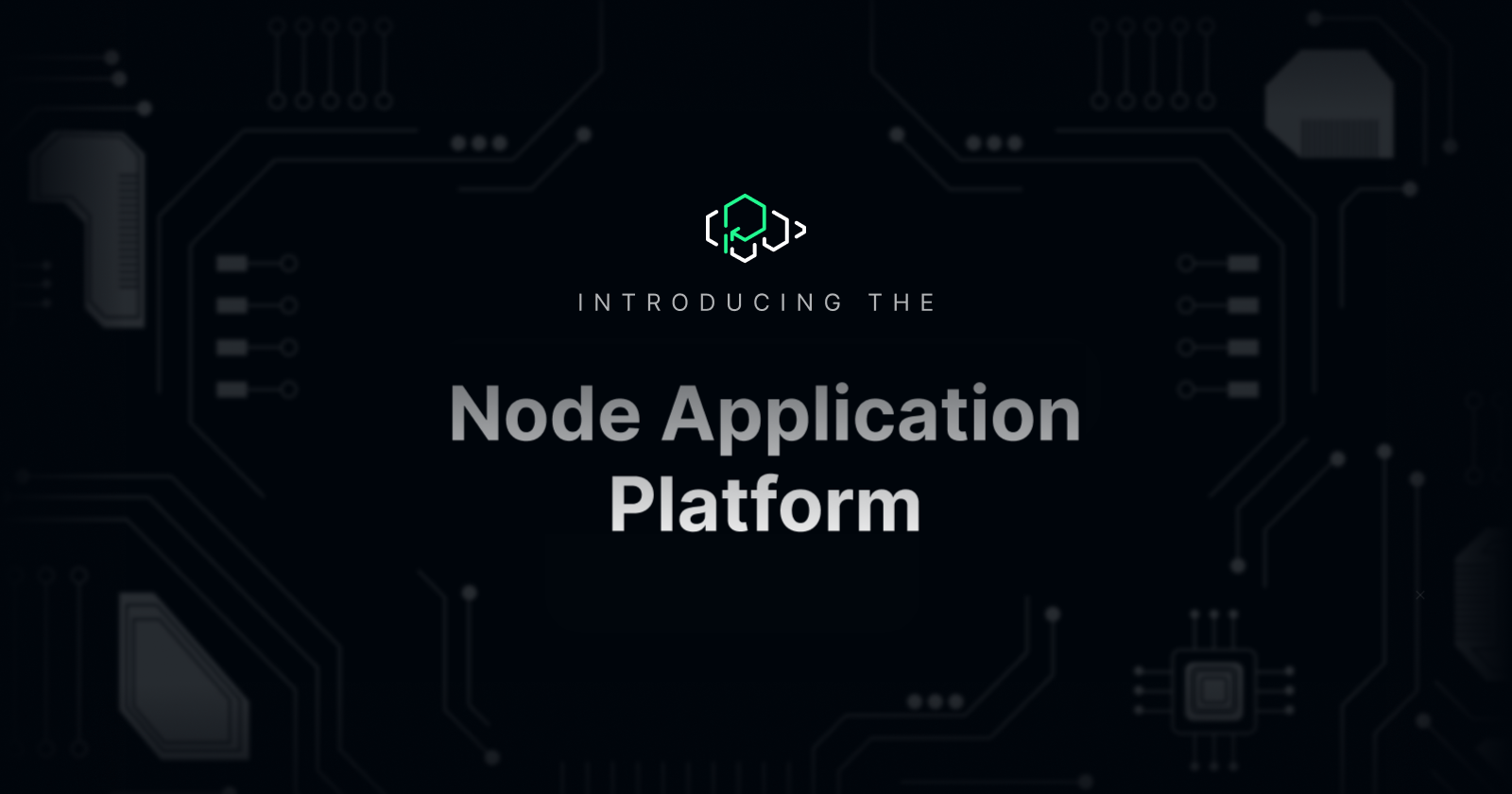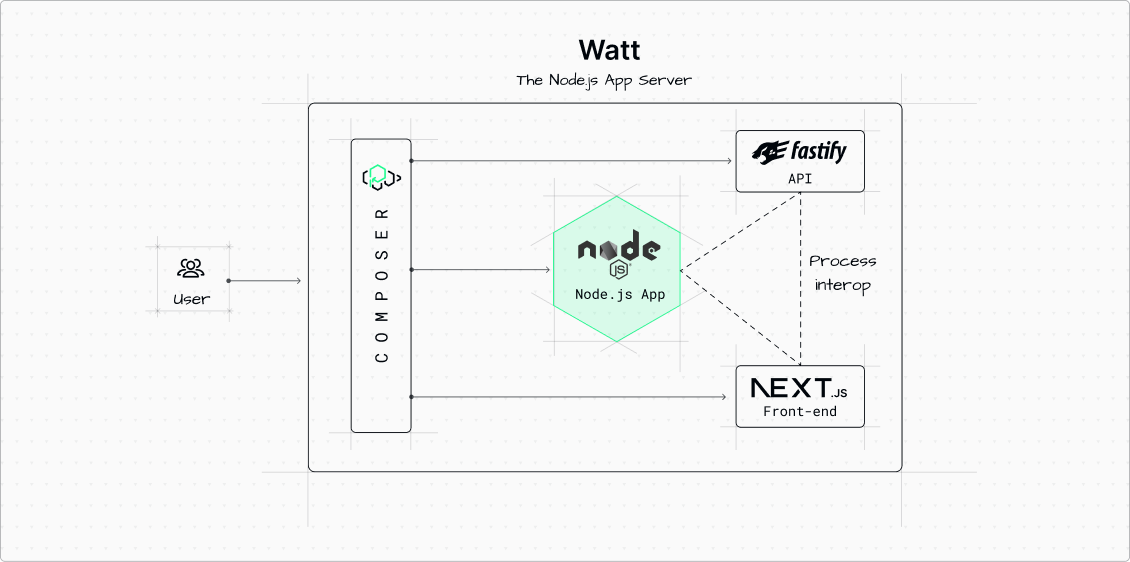Introducing the Node Application Platform
 Luca Maraschi
Luca Maraschi
Imagine a world where managing Node.js applications on Kubernetes was as simple as deploying a single command. A world without the complexities of juggling multiple environments, logging, and tracing. Unfortunately, for many enterprise teams, this is a distant reality.
Today, managing Node.js at scale presents unique challenges that slow down teams.
Because of this, teams must navigate traffic spikes, ensure API compatibility, and manage operational risks, harmonize non-functional-requirements (NFRs), all while trying to maintain uptime and accelerate time-to-market.
These complexities can lead to delays, development bottlenecks, and workarounds that hinder innovation. Making the correct choices is hard, and the consequences of making mistakes are high.
The operational gap between Node.js developers, operators, and the wider business
With years of experience helping Fortune 500 companies build and scale their most critical Node.js applications, we’ve seen firsthand the challenges teams face when trying to streamline their operations.
From troubleshooting distributed systems to optimizing for performance, we’ve tackled some of the toughest challenges Node.js has to offer. However, we know not every team has the bandwidth or expertise to do the same.
With today’s launch, we are introducing functionality that will help enterprise teams finally tackle the following issues:
1. There is no Node-specific platform for your K8s: Teams are still juggling across multiple environments, logging, and tracing, compounding complexity.
2. Node.js is easy to learn but hard to master: It’s hard to recruit seasoned talent or teach junior devs the intricacies of Node.js, leading to cumbersome workarounds, and go-to-market delays.
3. Enterprise Node.js is an non-functional requirement minefield: Teams are stuck between balancing traffic spikes, monitoring reliability, checking compatibility with APIs, and preventing risks — not on building.
So, how can enterprise teams best address these challenges?
Earlier this year, we introduced the Command Center, our centralized platform for managing Node.js applications. While the Command Center provided valuable insights and tools, we recognized the need for a more comprehensive solution that could handle the complexities of running Node.js on Kubernetes.
To address this, we developed Watt, our Node.js application server
Built for Node.js, Watt is compatible with your stack, whether that be Express, Fastify, Koa, Next.js, Remix, or Astro.
It offers simplified application management, streamlines NFR management, and abstracts away time-consuming tasks like monitoring, logging and tracing all while supporting full stack applications.
Watt automates multithreading to help you handle traffic spikes seamlessly - like any other application server; it allows you to run multiple Node.js services within the same process with inter-threading communication over HTTP.

Watt is Open Source and licensed under the Apache 2.0 license, and you can install it today with npm i wattpm.
Check out our getting started guide to discover how to seamlessly bridge the gap between your local development and production systems.
We’ve also kitted out our Command Center with autoscaling
Platformatic’s Command Center allows developers, wider DevOps teams and their leadership to monitor, manage, and optimize all their Node.js applications within a single, unified dashboard.
It provides insights into Node metrics, application taxonomy, audit logs, and deployment risk analysis, centralizing observability and management tasks.
With the Command Center built atop Watt, all this data is easily accessible without any modification to your Node.js application.
With the Intelligent Autoscaler, your application will now dynamically adjust Kubernetes resources in response to traffic spikes and Node-core metrics, ensuring optimal performance and uptime.
By contextualizing Node.js and its applications within clusters, the autoscaler intelligently measures event loops and intelligently handles concurrent requests with precision, allowing applications to stay responsive and efficient, even under varying loads– no hands needed.
Empowering teams to innovate
Platformatic empowers teams to innovate by simplifying Node.js operations and accelerating time-to-market. Our platform provides a comprehensive solution for managing Node.js applications on Kubernetes, enabling teams to:
Reduce development time: By automating routine tasks and providing a unified platform, Platformatic frees developers to focus on building features and delivering value.
Improve application performance: Our intelligent autoscaler and optimization tools ensure that your Node.js applications perform at their peak.
Enhance developer experience: Platformatic's user-friendly interface and seamless integration with popular frameworks make it easy for developers to work with.
Discover how Platformatic can streamline your development process and accelerate your time-to-market.
Book a demo today to explore the future of Node.js management.
Subscribe to my newsletter
Read articles from Luca Maraschi directly inside your inbox. Subscribe to the newsletter, and don't miss out.
Written by
